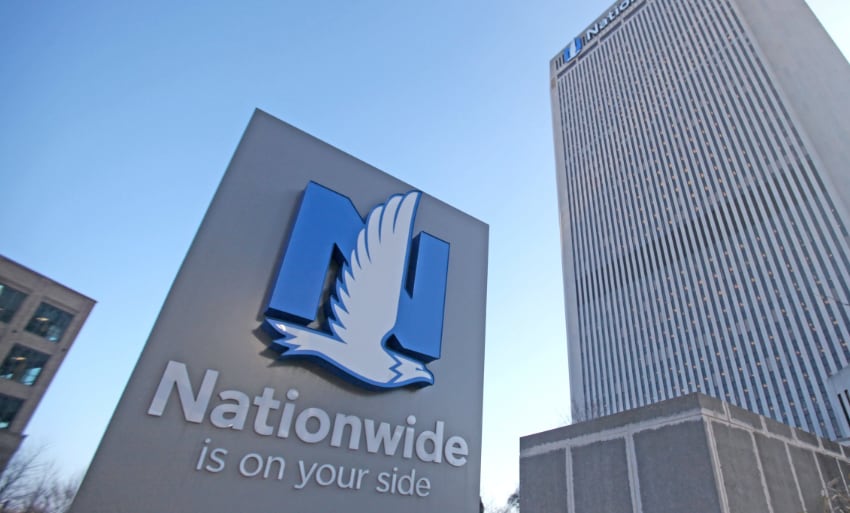Nationwide set to re-underwrite some personal lines and property business

News emerged yesterday confirming rumours we’d heard that Nationwide is the latest major US insurance carrier to take actions in the face of challenging market conditions and escalating loss severity or frequency trends. But we’ve now learned more, including that the carrier will re-underwrite some of its personal lines book to further improve the portfolio quality.
As we reported yesterday, Nationwide Mutual Insurance is pulling-back, due to catastrophic weather losses and inflation among other reasons, planning to cease writing certain new business as it looks to get a handle on its exposure and claims frequency.
This is a developing trend, as we explained and a wholehearted admission by some of the biggest US insurance players that catastrophe and weather loss-costs and claims frequency have been running away from them, exacerbated by economic factors, inflation, rising litigation rates and much higher reinsurance costs, all of which are forcing them to take a step back and assess the profitability of their portfolios.
We’ve now learned some more details of Nationwide’s moves to improve its portfolio and get a better handle on the exposure and frequency held within it.
This announcement we’ve seen is a little more detailed in its explanation for the drivers, than yesterday’s media announcement was.
“Strong headwinds brought on by the economic environment, catastrophic weather events and the impacts of inflation on repair and replacement costs, along with severity and frequency of driving trends, continue to impact the entire insurance industry. At Nationwide, our focus is on remaining a strong, stable partner that protects customers for the long-term.
“As a result, we are taking the following actions across our businesses, similar to many other carriers in this market,” the insurer explained to its agents.
In the small commercial business, Nationwide is actually pausing some property insurance writings completely, specifically in habitational and lessor’s risk across the entire US from June 30th.
In addition, Nationwide is set to begin non-renewing monoline auto policies from June 26th, first with late-September effective dates, but the impact here will depend on state regulations, we understand.
In personal lines, the standard book looks set to get a perhaps meaningful pruning, with some re-underwriting set to take place.
Pre-quote documentation will now be required for auto, property and powersports business in the following states from June 14th: AL, AZ, CA, CT, DE, DC, FL, GA, ID, IL, MD, MN, MS, MO, NV, NJ, NM, NY, NC, OH, PA, RI, SC, TN, VA, WA.
Which means Nationwide is looking for full documentation in advance of underwriting, and so regardless of quotes given we suspect they could change, or be withdrawn perhaps.
Effectively this gives Nationwide the opportunity to underwrite its inwards business more closely, rather than signing off on quotes agents have given, it appears.
Also of note, dependent on the risk characteristics of property in the states of AR, CO, IA, IN, KS, KY, MA, ME, MI, MT, NE, ND, NH, OR, SD, TX, UT, VT, WI, WV, and WY, pre-quote documentation may also be required. We suspect this means that cat-exposed property is set to get a much closer underwriting look before being quoted or bound going forwards.
Even more meaningful, Nationwide said that through the rest of 2023 and into 2024 it will start re-underwriting initiatives for its standard personal lines business, which it expects will increase renewal actions, and also in many cases drive property inspection requests before business will be written.
Again, this is a sign of an insurance company looking to gain much more granular oversight of its exposures and the claims frequency it has been experiencing.
Similar measures are being taken across the private client book at Nationwide, including for certain property risks, we understand.
We suspect there are likely more initiatives at Nationwide, to further improve the quality of its underwriting portfolio, take back more underwriting control and ultimately to make its books of insurance business more profitable.
Ultimately, these moves are likely to become far more widespread around the market and they will have some reinsurance market relevance, as cession quality may improve and these actions could, in time, help to make reinsurance capital more readily available and even help slow or stop the hardening, if US primary carriers can get much better control of their claims frequencies and costs.
Also read:
Nationwide is latest major US insurer to pull-back, citing cat weather losses & inflation.
AIG & Farmers also reported to pull-back from some catastrophe risks.
State Farm exits California property on rising cat risk & reinsurance costs.
Velocity Risk to exit the homeowners insurance market.
Florida: Exposure management by any means necessary.






